With the massive success of Baldur’s Gate 3’s adaption of D&D5e, Owlcat has undertaken a similar herculean task of adapting Rogue Trader (2009). With Owlcat’s previous two adaptions of a TTRPG-turned-CRPG with Pathfinder, I was wondering how well they did with Warhammer 40K Rogue Trader.
As someone who has read through and even ran a couple of one-shots of Fantasy Flight’s 2009 TTRPG version, I was also very curious about how they managed to fit such a vast and complex system into an accessible game. With this in mind, there’s plenty to go through here, including the combat system, interactive story, consequence system, ship combat, colony management, and more.
Warhammer 40K Rogue Trader Review: A Grim Dark Odyssey
I can’t help but compare Warhammer 40K Rogue Trader to both Baldur’s Gate 3 and Kingmaker/Wrath of the Righteous. I played all three games and loved them for their crunchy translations of TTRPG rules into actionable CRPG mechanics. The neat part is that they’re all based on D&D, with BG3 being the fifth edition and Kingmaker/WotR being Pathfinder, which is based on D&D third edition.
However, Rogue Trader tackles a whole different system and switches out epic fantasy for the grim darkness of the far future where there’s only war (Or WAAAGH, if you’re cool and green enough). You take control of a Rogue Trader, a Lord Captain of an imperial voidship outfitted with a loyal and diverse crew set on exploring the far reaches of the Koronus Expanse, where you’ll face classic WH40K factions and “chaotic” encounters.
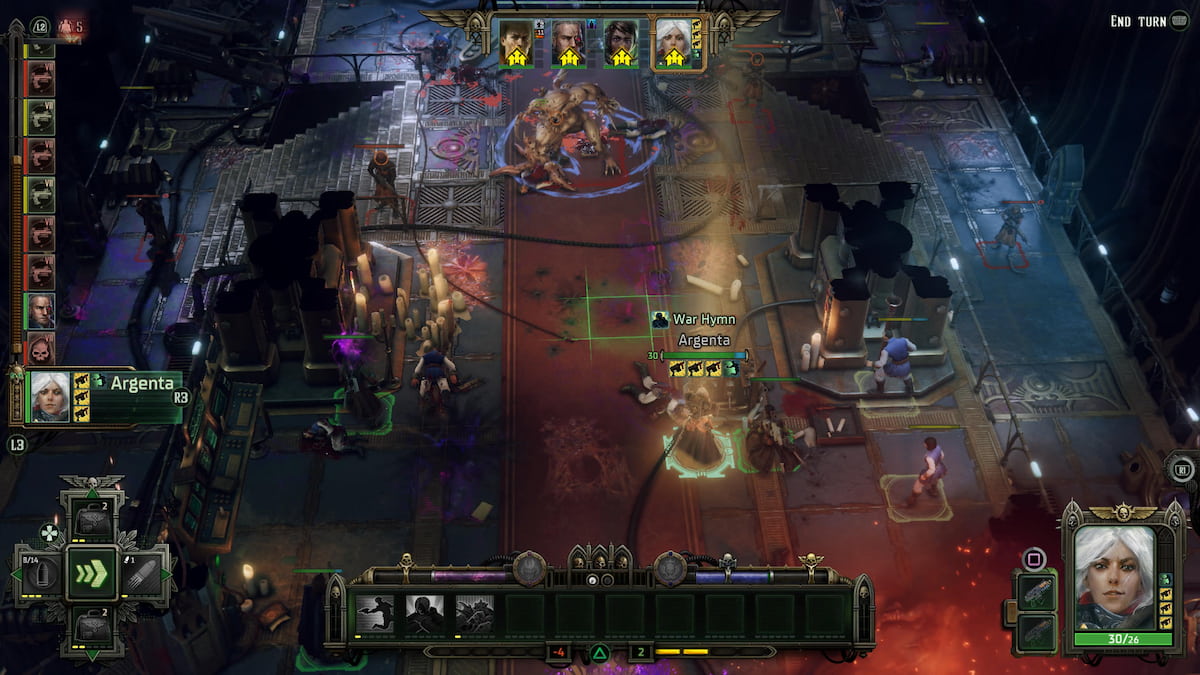
First and foremost, Owlcat nailed the combat system by not necessarily adapting the TTRPG beat for beat but actually simplifying it slightly to fit the digital medium. The crunchy aim-shoot-dodge or strike-dodge-parry d100 test feel is still there but streamlined for new players. One of the core (and exciting) mechanics is Momentum, a morale system that allows you to activate powerful ultimate abilities to turn the tide of battle.
That said, the character creation system is where things get real and the complexities of Rogue Trader hit for the first time. It’s not as simple as picking a race and class and being done with it. You can customize your Homeworld, Origin, Sub-origin (Psykers), Triumphs & Darkest Hours, Archetype, and finally Skills with each section being highly mechanically or narratively relevant. Archetypes are your class but are modified by your mechanical abilities from your Homeworld, and Origin and Skills are your roleplaying/combat characteristics modified by your Triumphs & DH throughout the game’s story.
For example, I created two characters with two simple ideas in mind: I wanted to play a sniper character and a psionic-power-using Psyker. I picked the Operative Archetype and that suited a sniper character fine, but my Fortress World abilities for double shots and Crime Lord abilities for single-shot damage boosts propelled the build to a whole new level of depth.
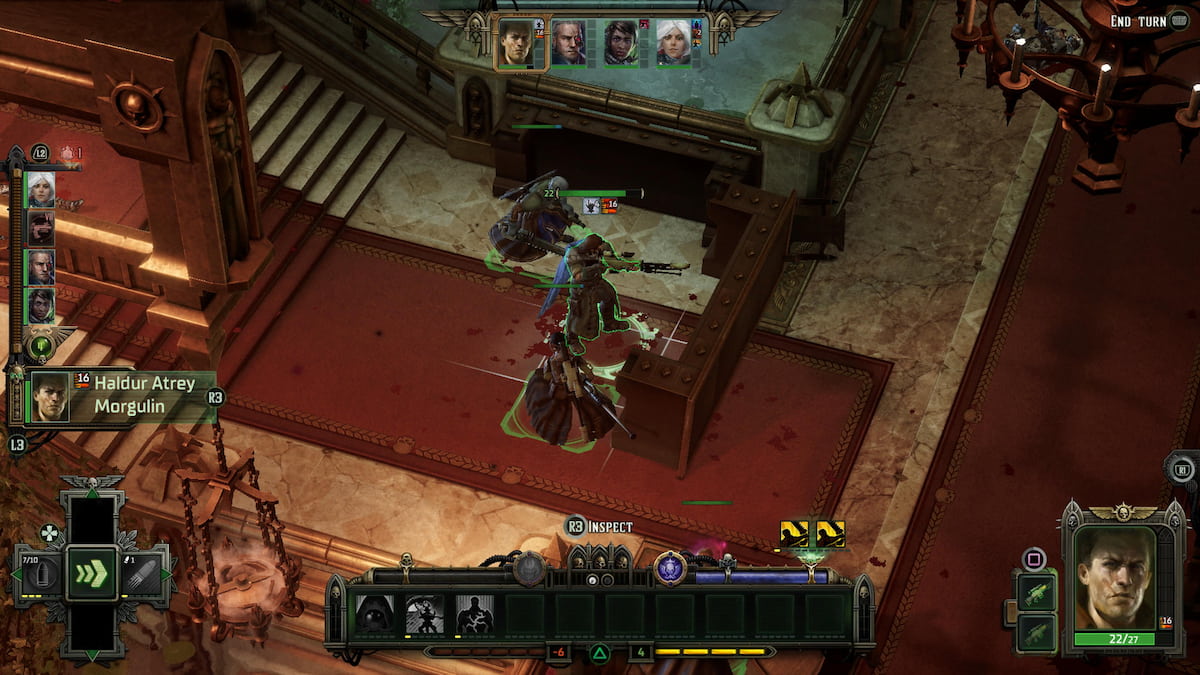
Furthermore, being a Psyker isn’t even your class but an origin option that can modify your Archetype. On that character, I took the multi-attacking Soldier option that’s usually for gun-wielders, but it worked with my Psyker abilities, allowing me to fire off powers twice per turn.
It’s a beautifully vast system that takes a while to get used to but is incredibly rewarding and offers incredible customization. While I love titles like this, it’s sad to say its complexity might turn some people off from the game, especially since we haven’t even gotten into the combat system yet. It’s noteworthy that Owlcat has introduced some hand-holding with the Recommended Talents section during Level Up, but it offers only a few options and wanes later as you pick up more advanced Archetypes.
Just this alone describes how Rogue Trader is an acquired taste for players who generally like the detail-oriented intricacies of CRPGs. While the game is narratively accessible for newcomers to the WH40K universe, mechanical unfriendliness does exist at first for those who haven’t played the Rogue Trader TTRPG. Still, the same can be said for the Kingmaker and Wrath of the Righteous Pathfinder adaptions and those two performed well at launch with new players, so this might not be as big of an issue as I’m making it out to be.
If this sounds like fun to you, you’ll have a blast choosing from the various weapons that have alternate fire modes like Single Shot and area-spanning Burst Shots. Then, your party composition in combat comes into effect, where you’re combining the various abilities of custom characters you can create with companions. This is further boosted by the excellent drop-in online co-op system, where playing with your friends is seamless as you create your unique team composition (watch out for the Magicka-esque friendly fire system, though).
Each combination can work since every class has several ways to build it. I could design my Psyker around Pyromancy blasts from range or spec into a more melee-based tanky build with Biomancy or Sanctic. Experimentation is endless, and I have to applaud the developers for introducing custom companion creation and respecing early for someone like myself who likes to mix and match their own custom party.
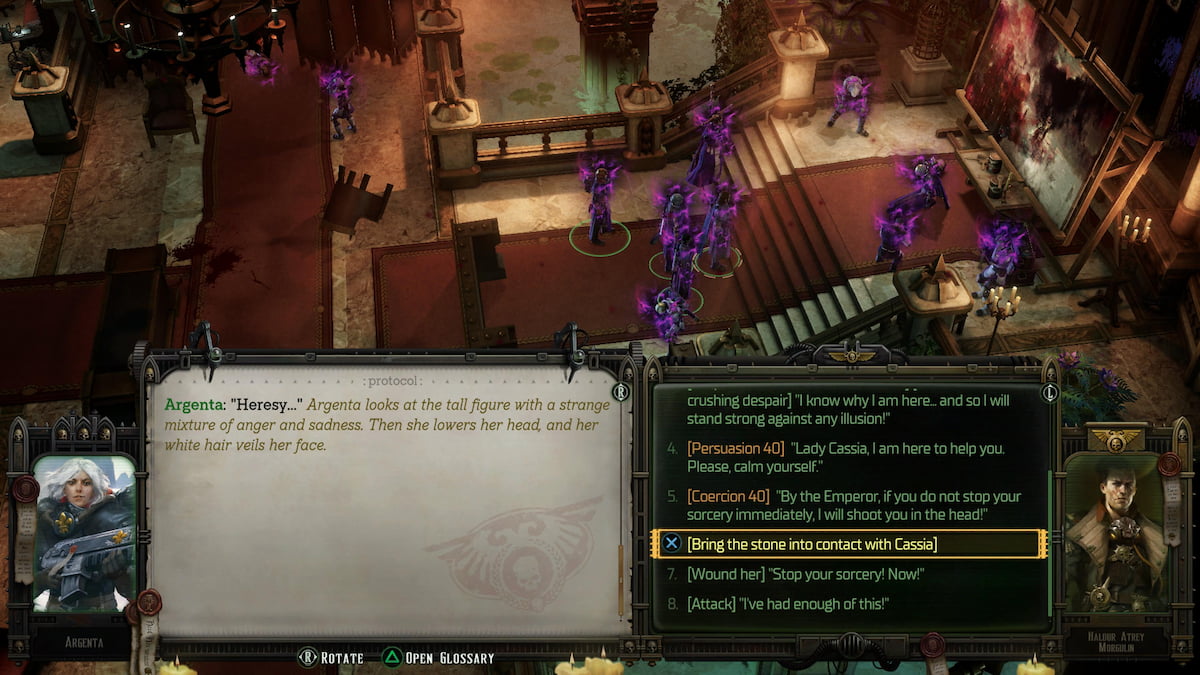
Furthermore, the narrative is incredible as you take command of your Rogue Trader ship, explore the Koronus Expanse through the Starmap, and interact with the multitudes of WH40K factions both imperial, heretical, and somewhere in between. The game introduces an Alignment and Reputation system, where your dialogue story choices are tracked giving you new unique options based on how you roleplay your Rogue Trader.
Different companion NPCs may join your party based on these choices or alternate approaches to encounters present themselves depending on your story preferences. Furthermore, through various factors, like how you interact with Imperial Inquisitors and various other groups, the story shifts and changes into new directions, triggering multiple endings or different scenarios down the line. For example, my sniper and Psyker followed the Benevolencia and Hereticus paths respectively. Where the Benevolencia path allowed me better diplomatic relationships with certain characters, the Hereticus path allowed me to take control of a Mauler/Forge Fiend Daemon Engine in one encounter.
The latter was one of my favorite scenes in all of CRPGs ever.
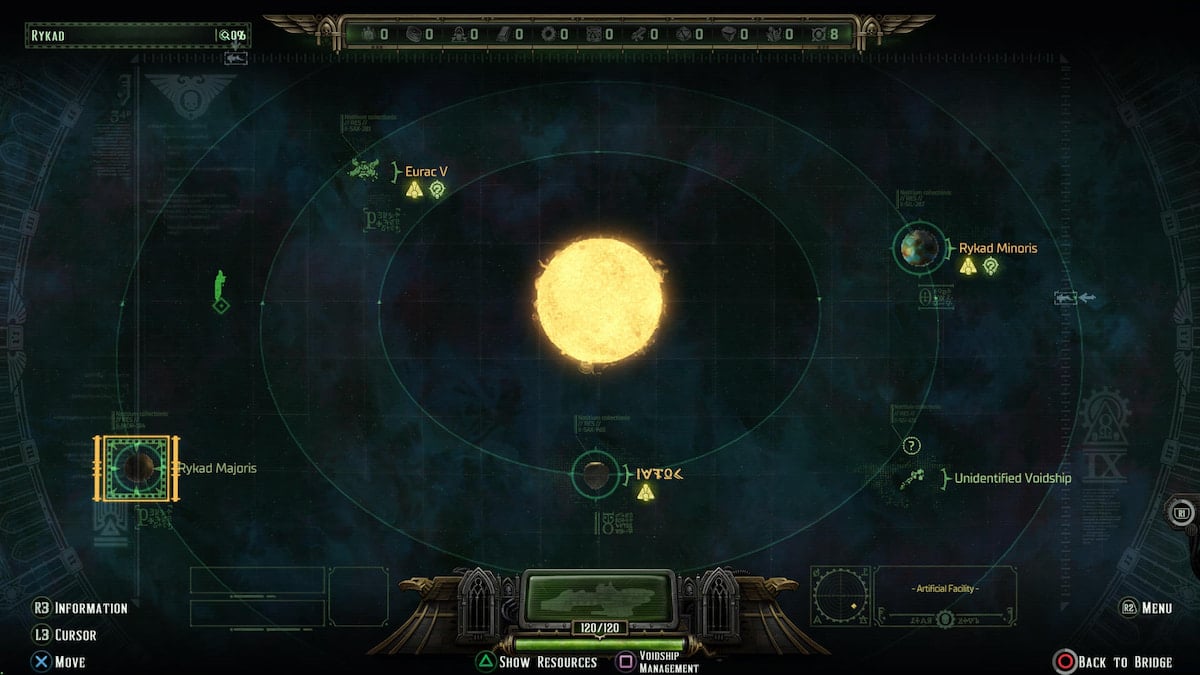
On top of all of this, WH40K Rogue Trader has two mini-game systems with Colony Management and Voidship Combat as you progress through the story. Similar to Kingmaker, you’ll have a slew of resources displayed at the top as you make decisions on how you manage your crew and colonies on other planets. You can plunder and build up a small cast of followers for your own gain while deploying an occasional Exterminatus on an unredeemable planet or try to save and take in as many new people at the cost of precious resources. Overall, the game slowly introduces new mechanics and mini-games as you progress from Act 1 to Act 2.
As for Voidship combat starting from Act 2, it’s a surprisingly developed system that’s simple to learn in a few runs. It’s no Battlefleet Gothic Armada or Crying Suns, but it will still prove enjoyable alongside ground-based combat. You can upgrade and level up your ship, allowing it to take many different maneuvering, defensive, and offensive actions in combat. There’s a neat movement mechanic based around Acceleration and Battering other ships. However, ranged weapons are your best bet with various options like manually-aimed torpedoes, long-range lance weapons, or AoE macro cannons.
The system is elevated when you consider that in online co-op, each of your friends can control a different part of the ship, like one friend being a Master of Maneuvers for movement and another focusing on offense with the Master Cannoneer role. Companions grant you different abilities in these stations and some are better than others based on their Origin like Abelard being a Navy Officer. That said, one issue I had with ship combat is that it’s not interwoven too well into the story and is more like its own separate thing. Sometimes, optional ship battles can feel like a slog you’re going through without a clear story purpose.
This is fine because you can skip most fights, but then you won’t be strong enough to undertake some of the mandatory fights later on. I quite liked it overall, but it does need a bit more work to incorporate it properly into the main story by, for example, introducing complex dialogue sections during ship combat.
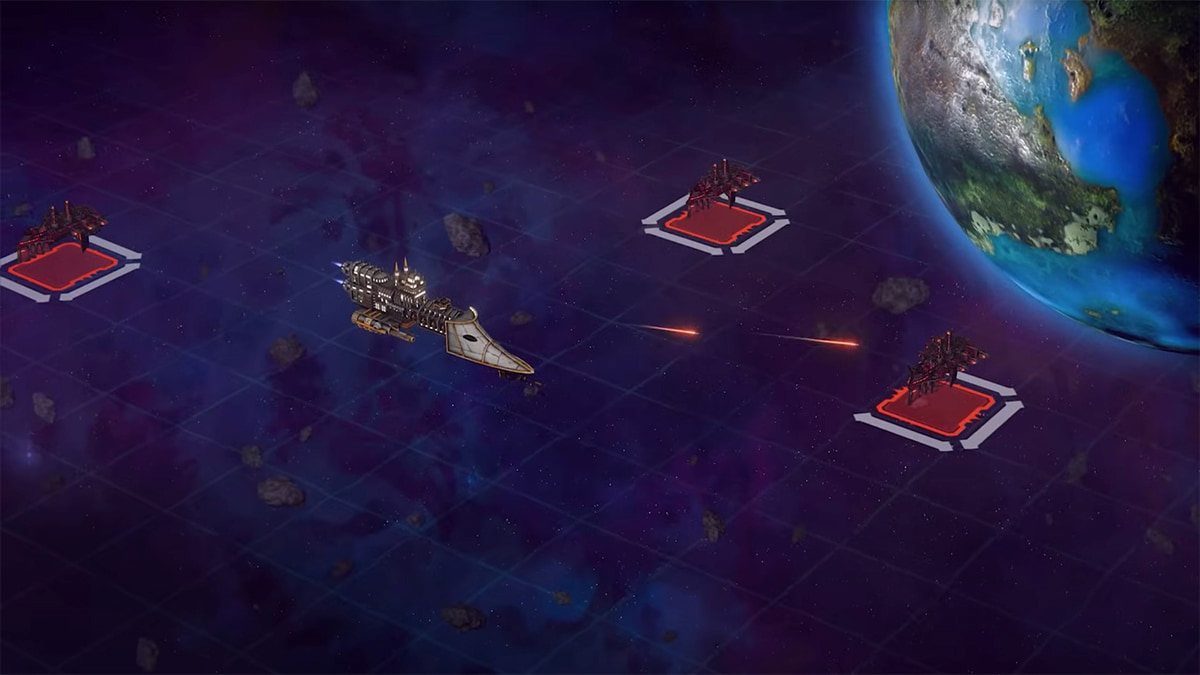
When it comes to difficulty, it’s highly customizable in a similar manner as in Pathfinder Kingmaker and Wrath of the Righteous. You can alter specific values, such as skill check difficulty, combat damage, enemy critical hit frequency, Voidship combat difficulty, and much more. Then again, you can simply fire up the Core difficulty mode, which emulates the experience of playing in a Rogue Trader TTRPG session.
On Core, I found the game to be balanced just right, even though it warns you to start on Normal. You’ll struggle at the beginning not because the game is difficult — even though it can be with some difficulty spikes like Chaos Marines — but because the combat and character leveling system take time to learn. Luckily, there’s no perma-death, you have access to saves, and you can respec at any time and fix your character-building mistakes. In fact, characters don’t die when they fall to 0 in combat; they just fall unconscious and receive debuffing Injuries and Traumas, which can be treated later.
Where I did find the game difficult was more due to clunky console interface controls which could use a bit more work on the port’s side. That said, the game is incredibly well-optimized performance-wise and will run even on slightly outdated machines.
Warhammer 40K Rogue Trader Review — The Bottom Line
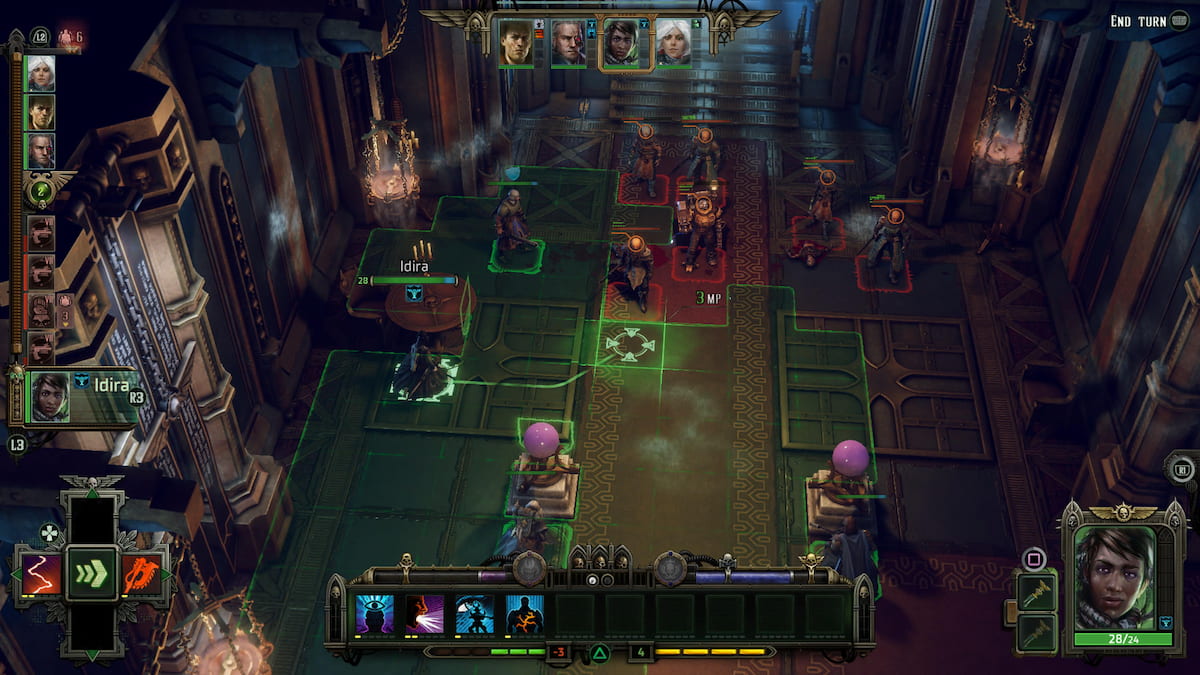
Pros
- An incredible amount of character-building options that are endlessly replayable.
- A visually stunning and beautifully crunchy combat system that feels very rewarding to learn.
- An atmospheric WH40K grim dark story that is highly interactable, full of neat twists, and rewards agency.
- Seamless drop-in online co-op mode where you can carry your progress over to single-player.
- A Voidship combat mini-game that is surprisingly well-developed mechanically.
- Quick access to the ability to create a full custom party and respec when needed.
- A Space Wolf companion (no further elaboration).
Cons
- Too many passive abilities that can take hours to read but make classes feel identical. They can sometimes even bury the more active fun options.
- Clunky interface controls on consoles, especially in the Level Up menu.
- Voidship combat needs more narrative ties to the main story.
- Though there are many great ones, the barrage of useless Talents on the first few Level Ups might repel new players, and the recommended section needs to be expanded.
The best compliment I can give Rogue Trader is that it is a faithful love letter to the Warhammer 40K universe. Many of the aspects that fans of 40K want in a CRPG game are here, from various iconic factions to superbly-designed gritty tactical combat. Most story choices feel incredibly meaningful and character-building decisions are usually fun despite a slew of useless Talents.
The problem is that quantity doesn’t beat quality in character building, as many of the Archetypes can suffer from a lack of variety if not built properly. If the Level Up screen was fixed, both in terms of controls and by culling the “+Small% damage to one gun type” Talents, this game would be perfect.
On the bright side, there are so many interesting abilities and interactions between Archetypes, Origins, and Homeworlds that allow you to build tons of character options. Owlcat just needs to make sure they’re all balanced and viable to avoid that “one option per class to rule them all” problem. That said, the full release is miles better than the beta and this game has a bright future alongside Kingmaker and WotR with the potential to even surpass them.
I’d say Owlcat’s Warhammer 40K Rogue Trader can even offer a competent fight against Baldur’s Gate 3, which is saying a lot. That narrative consequences & agency system combined with a highly customizable ground & ship combat is just that good.
[Note: Owlcat Games provided the PS5 copy of Warhammer 40K Rogue Trader used for this review.]

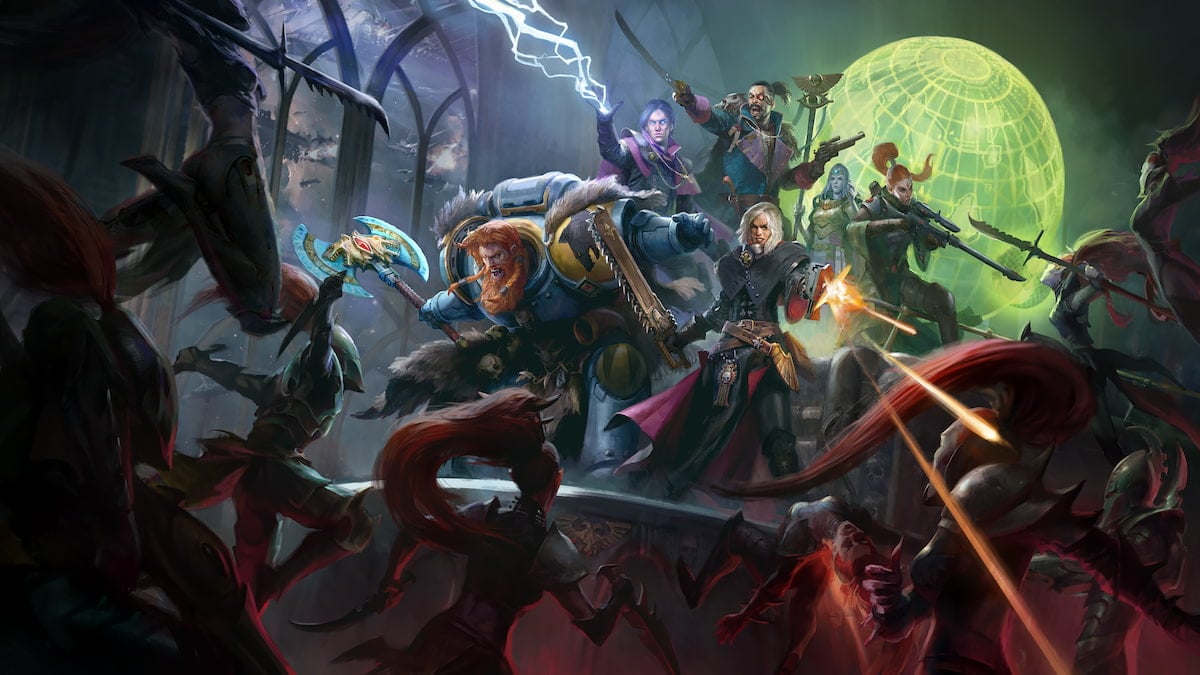





Published: Dec 6, 2023 08:00 am